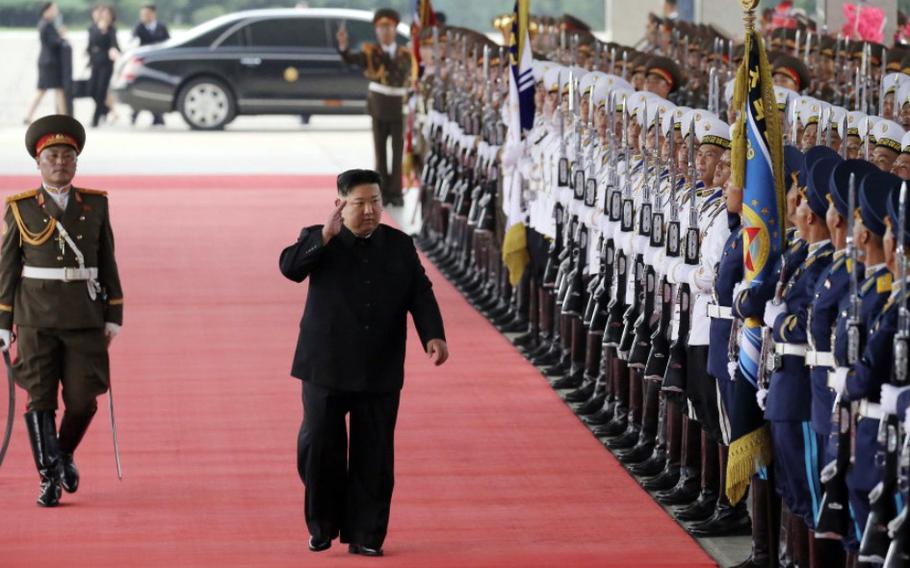
North Korean leader Kim Jong Un departs Pyongyang for Russia in this undated photo issued by the state-run Korean Central News Agency on Sept. 12, 2023. (KCNA)
CAMP HUMPHREYS, South Korea — North Korea’s self-imposed deadline for a third try at placing a military reconnaissance satellite into orbit passed without a launch from the communist regime.
After a failed attempt on Aug. 24, the North Korean National Aerospace Development Administration pledged to try again in October, according to a report that day from the Korean Central News Agency.
A rocket carrying the Malligyong-1 satellite, launched at 3:50 a.m. Aug. 24 from North Pyongan province, traveled south over the Yellow Sea before failing, South Korea’s Joint Chiefs of Staff said in a message to reporters at the time.
KCNA attributed the rocket’s failure to a flawed third stage emergency blasting system.
Pyongyang’s first attempt to put a satellite into orbit came May 31. Five weeks later, a salvage operation led by South Korea’s military found parts of the launch vehicle that had “no military utility” in the Yellow Sea, about 125 miles west of the South’s Eocheong Island, according to the Ministry of National Defense in Seoul.
Predicting North Korean satellite launches is difficult, South Korean Col. Lee Sung-jun, spokesman for the Joint Chiefs of Staff, told reporters Tuesday in Seoul. The South Korean military and the United States continue to monitor the situation, he said.
Prior to the two attempts, North Korea claimed to have conducted six satellite launches — two of them successful — since 1998, according to a May report by the Seoul-based East Asia Institute think tank.
The U.S. and South Korea have alleged North Korea’s satellite launches are cover for weapons tests and said the technology is directly related to the regime’s intercontinental ballistic missile program.
Although prohibited since 2006 by U.N. Security Council resolutions from “all ballistic missile activities,” North Korea has fired 21 ballistic missiles in 14 days of testing so far this year.
“The United States strongly condemns [North Korea] for its launch using ballistic missile technology, which despite its failure, is a brazen violation of multiple U.N. Security Council resolutions, raises tensions, and risks destabilizing the security situation in the region and beyond,” the State Department said in a statement Aug. 24.